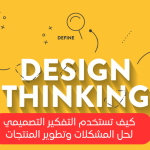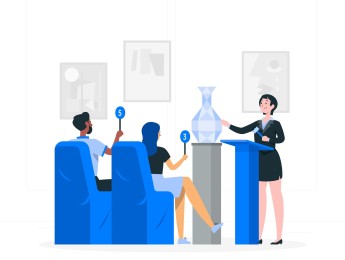Design Thinking is more than a buzzword—it's a problem-solving approach that places human needs at the centre of innovation. This course equips professionals with the mindset and tools of Design Thinking to tackle complex challenges creatively, develop user-centric solutions, and foster innovation in diverse sectors.
Through immersive workshops, case studies, and collaborative projects, participants will learn to empathise with users, define meaningful problems, ideate bold solutions, prototype creatively, and test iteratively. Whether in business, product development, social innovation, or education, this course transforms how participants approach problem-solving.
By the end of this course, participants will be able to:
- Understand the principles and stages of Design Thinking.
- Apply empathy-driven research to identify real user needs.
- Frame and reframe problems to uncover new opportunities.
- Generate creative, user-focused ideas through structured ideation.
- Build rapid prototypes and test them effectively.
- Create a culture of innovation within their teams or organisations.
- Apply Design Thinking in real-world professional settings.
This course is ideal for:
- Innovation leaders and project managers.
- Product developers and UX/UI designers.
- Marketing and brand strategists.
- Social entrepreneurs and NGO teams.
- Educators and curriculum designers.
- Anyone seeking to improve their problem-solving approach.
The course uses a highly interactive, hands-on approach designed to engage participants through practical experience and collaborative learning. It features empathy interviews and observation exercises to deepen understanding of user needs, along with brainstorming and ideation sessions that spark creativity. Participants will engage in rapid prototyping and visual thinking to quickly bring ideas to life, explore real-world case studies for applied learning, and collaborate in groups with opportunities for peer feedback. The approach also emphasizes iterative design and problem refinement, ensuring continuous improvement and real impact.
Day 5 of each course is reserved for a Q&A session, which may occur off-site. For 10-day courses, this also applies to day 10
Section 1: Introduction to Design Thinking
- What is Design Thinking? Core principles and mindset.
- Origins and evolution of the approach.
- The 5-stage Design Thinking process.
- Benefits and applications across industries.
- Mindsets for creativity and innovation.
Section 2: Empathy and Human-Centered Research
- Understanding user needs through observation and interviews.
- Building empathy maps and personas.
- Identifying pain points and unmet needs.
- Field research techniques for deep insight.
- Activity: Empathy fieldwork and reflection.
Section 3: Define – Framing the Right Problem
- Translating research into meaningful problem statements.
- Using "How Might We…" framing for opportunity discovery.
- Identifying root causes vs. symptoms.
- Tools for analysis: Affinity mapping and journey maps.
- Group work: Define a real-world challenge.
Section 4: Ideation – Generating Innovative Solutions
- Creating an idea-friendly environment.
- Ideation tools: Brainstorming, SCAMPER, mind mapping.
- Divergent and convergent thinking in idea development.
- Selecting promising ideas for prototyping.
- Activity: Structured ideation challenge.
Section 5: Prototyping – Bringing Ideas to Life
- Rapid prototyping: low-fidelity models and visual storytelling.
- Materials and methods for prototyping.
- Testing assumptions and gathering feedback.
- Encouraging a fail-fast, learn-fast culture.
- Activity: Build and present a prototype.
Section 6: Testing and Iteration
- Planning user testing: what to observe and measure.
- Interpreting feedback and adjusting designs.
- Looping back: when to redefine, ideate again, or move forward.
- Case studies of iterative product development.
- Team activity: Test, refine, and pitch the solution.
Section 7: Embedding Design Thinking in Organisations
- Building a culture of creativity and experimentation.
- Cross-functional collaboration and leadership buy-in.
- Design Thinking for organisational strategy and transformation.
- Measuring impact: innovation KPIs.
- Toolkit: Design Thinking templates and playbook.
Upon successful completion of this training course, delegates will be awarded a Holistique Training Certificate of Completion. For those who attend and complete the online training course, a Holistique Training e-Certificate will be provided.
Holistique Training Certificates are accredited by the British Accreditation Council (BAC) and The CPD Certification Service (CPD), and are certified under ISO 9001, ISO 21001, and ISO 29993 standards.
CPD credits for this course are granted by our Certificates and will be reflected on the Holistique Training Certificate of Completion. In accordance with the standards of The CPD Certification Service, one CPD credit is awarded per hour of course attendance. A maximum of 50 CPD credits can be claimed for any single course we currently offer.
- Course Code MG2 - 198
- Course Format Classroom, Online,
- Duration 5 days













